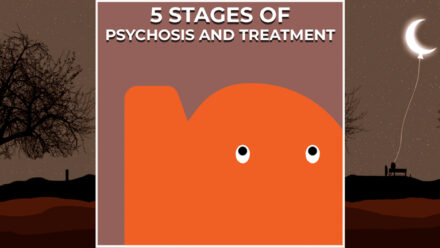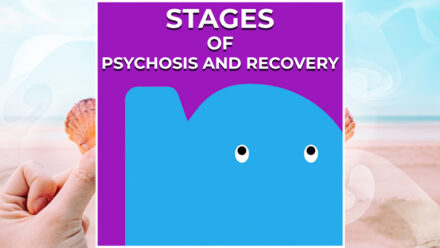
Everyone has a little bit of psychosis vulnerability, but not everyone develops psychosis. When someone does, often triggers can be identified (with the wisdom of hindsight) that have led to the psychotic problems. Not enough sleep, social stress or drug use, are common examples of triggers.
Visible and common triggers
Looking at many different patients and their psychotic experiences, gives us some insights about common triggers for developing psychosis. Identifiable triggers include:
- Drastic life events such as losing a loved one, divorce, relationship problems or losing your job;
- Lack of sleep;
- Pregnancy and childbirth;
- Quitting breastfeeding (with postpartum psychosis);
- Stress, such as from being under high pressure to perform at work/education for a long time, or from a build-up of personal problems that make you lose your grip on life;
- Drug use;
- Alcohol (addiction);
- Having no human contact for a long time (isolation).
Other illnesses leading to psychotic symptoms
Some illnesses are known to also bring about signs of psychosis. In this case these psychotic signs are a symptom of another illness and do not point to psychosis vulnerability in itself.
- Brain diseases like Parkinson’s disease, Huntington’s, and some chromosomal disorders;
- Brain tumours or cysts;
- Dementia (including Alzheimer’s disease);
- HIV, syphilis and other illnesses that infect the brain;
- Some types of epilepsy;
- Stroke.
Summary
After one or more triggers, you could suddenly become psychotic. But in most cases, the psychosis appears not simply out of nowhere, but arises after a prolonged combination of circumstances, with a build-up of several risk factors and not enough protective factors (like cognitive ability, social resources, mental resilience). Finding out what your triggers are, and what is helpful for you, are important steps in your recovery process once you have realized your psychosis vulnerability.



